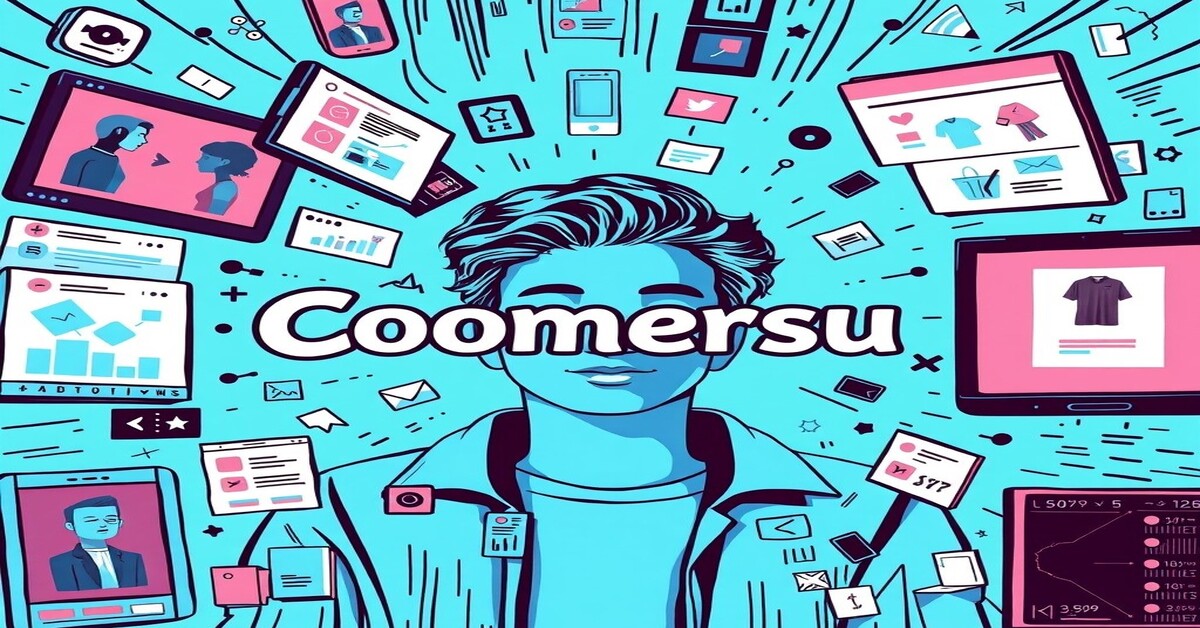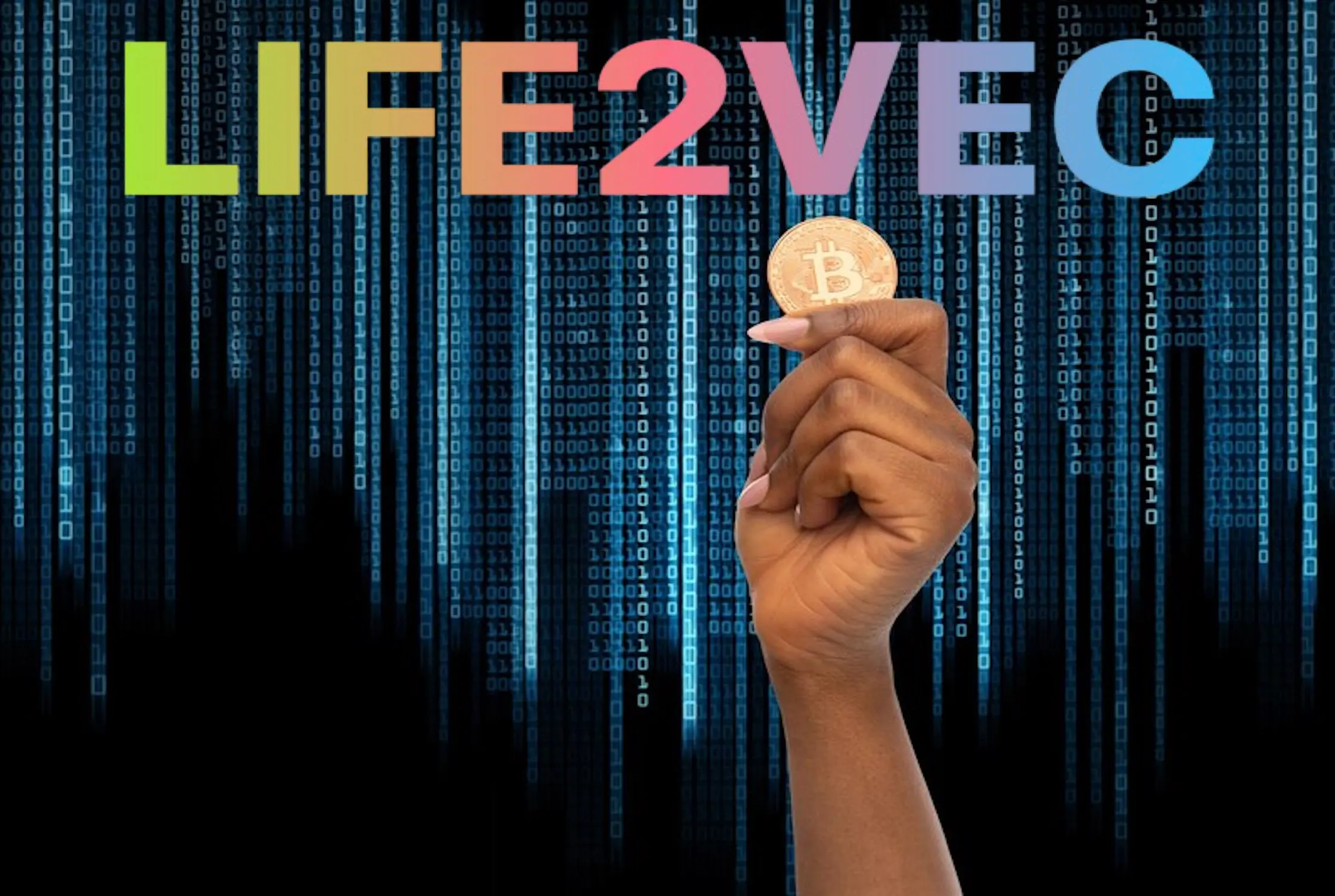The internet has reshaped the way we interact with each other, the way we see ourselves, and the way we build our identities. In the middle of this digital storm arises a term that is both hilarious and alarming: Coomersu. It’s more than a meme—it’s a lifestyle, a mindset, a commentary on modern online culture, and in many cases, a quiet crisis. This article explores what Coomersu is, how it emerged, and why it matters more than we might think.
What Is Coomersu?
Hybrid of “coomer” and “consumer,” the word “Coomersu” describes someone who uses the internet. “Coomer” is a term for someone who has an unhealthy preoccupation with pornography, fan art, or fictitious interests and uses it to describe someone who spends too much time enjoying these forms of online entertainment. At the same time, “Consumer” personifies contemporary capitalism: an individual whose existence is greatly impacted, if not entirely defined, by the items they purchase. Putting the two together creates a new digital archetype: someone whose identity is built via consuming, leading to compulsive consumption both out of need and out of pride.
A Coomersu is more than just an extravagant shopper. They are the ones whose whole internet persona is based on their interests—be they in fandoms, anime, influencers, or hyper-niche internet culture—and what they purchase, watch, love, or obsess over. Someone who does this views fictitious characters as companions and objects of worship as means to an end.
How the Digital Age Created the Coomersu
Coomersu can only be understood by delving into its birthplace. The internet is an apparatus that constantly stimulates users and allows for hyper-personalization. The goal of any algorithm is to provide you more of what you like, even before you’re aware that you enjoy it. A psychological pressure cooker is the result when you add in digital influencers, fandoms, microtransactions, and an infinite number of possibilities.
Having an online preference isn’t enough; you need to demonstrate it. To demonstrate your expertise, you may participate, purchase, publish, broadcast, and create material related to it. Being a “true fan” is making your love for something your own. That’s the ideal habitat for the Coomersu.
To have a predilection for anything online isn’t enough; action speaks louder than words. You may show off your knowledge by taking part, buying, publishing, broadcasting, or making content linked to it. A “true fan” is someone whose devotion to a cause goes beyond mere admiration. For the Coomersu, it is the perfect home.
The Emotional Void That Coomersu Tries to Fill
When you go behind the jokes and memes, you’ll frequently find a harsh reality. For many, the need to engage in Coomersu activity stems from a need to alleviate feelings of worry, boredom, loneliness, or a lack of direction in life. Quick satisfaction is yours in the digital realm. Feeling down? Tune in to noggin. Do you feel a lack of excitement? Peruse the TikTok videos. Do you feel lonely? Join a VTuber conversation. Are you feeling emotionally drained? Persuade yourself that a limited-edition body pillow is more than just cotton and ink by purchasing one.
Sadly, many people no longer get their emotional fulfillment from meaningful connections and tangible achievements, preferring instead to experience fleeting joys via their digital consumption. Avoiding exposure is simpler, quicker, and safer. But it’s also addicting and empty.
ALSO READ: Ecommerce SEO Rankstar: Boost Your Online Store’s Success
Why Fandom Culture Fuels Coomersu Behavior
Communities of shared interest, or fandoms, used to exist. Currently, they often resemble online marketplaces. Cartoons turn become products. Gods are created. In the emotional stock markets, fans turn become investors. You don’t only see a program; you also purchase merchandise, share memes, engage in online debates, and swear allegiance.
Because of this, parasocial interactions are formed, in which fans feel genuine emotional attachments to the people behind the creation or to imaginary characters. Coomersu conduct reaches its peak when these emotional investments turn into pecuniary ones. Keeping emotionally attached to something that isn’t genuine might cost hundreds, if not thousands, of money.
Memes, Irony, and the Normalization of Coomersu Culture
Deeply self-aware is Coomersu. Layers of irony encase it. Some internet users take pride in calling themselves “Coomersu” as a joke, yet they continue to act in a unironic manner. It’s the same as admitting, “I am aware of my issue, but as long as I find humor in it, it’ll be alright.”
An major societal change is being concealed by this gloomy humor. The confession that you’ve traded in face-to-face connection for virtual one is now socially acceptable. On the contrary, having a collection of waifus, a VTuber membership, and an emotional dependency on streaming programs is something to be proud of.
The fact that it has become so normalized in meme culture further adds to the risk. I thought everyone was doing it. There is a $300 figure purchasing frenzy and everyone is watching 12 hours of anime daily. A fictional persona is causing everyone to fall head over heels. The normalization just deepens and makes escaping the cycle more difficult.
Mental Health Impacts of the Coomersu Lifestyle
Being a Coomersu isn’t just about spending money or liking cartoons. It often comes with real mental health struggles. Constant consumption creates burnout. Emotional dependency on fictional or digital entities leads to detachment from reality. Comparing yourself to idealized online personas can cause self-esteem issues.
Some people, despite being always amused and connected, yet feel lonely, empty, and depressed. Reason being, it’s all about the entertainment and the kind of connection. If it’s biased, selective, or algorithmically designed to highlight your shortcomings, it won’t be useful for personal development. It’s just sedating you.
Coomersu as a Symbol of Capitalism’s Endgame
Come on, Coomersu didn’t just pop up. The system’s penchant for monetizing attention, playing on emotions, and promoting consumerism makes this outcome unavoidable. The World Wide Web has evolved into an endless mall devoid of storefront exit signs and hours of operation. You’re always being monitored and targeted when you’re online and making purchases.
Businesses have become experts at making people want their products. Once you buy into their product—fantasy, community, and identity—they keep selling you more. Rather than being a simple meme, the Coomersu serves as a client profile. Marketers’ wildest dreams fulfilled.
Counter-Movements: Can We Escape the Coomersu Trap?
Fortunately, not all are giving up. There is a subtle upheaval happening. In response, more and more people are turning to minimalist lifestyles, digital detoxes, slow living, and conscientious consumerism.
In an effort to break free of their digital addiction, some users are removing their social network accounts, not purchasing digital items, or prioritizing in-person encounters. Some people are learning to have healthy relationships with their fandoms, enjoying them without becoming obsessed or letting them take the place of actual life satisfaction.
Love is still valid; the key is not to let your passions define you.
The Future of Coomersu: Will It Get Worse or Evolve?
The future of Coomersu seems to be complicated, given the emergence of AI companions, virtual influencers, virtual reality experiences, and chatbots that can respond to users’ emotions. Perhaps it will develop into something even more captivating and engrossing. Envision yourself paying a monthly subscription to live within your favorite program, where the characters interact with you, understand you, and make you feel noticed.
On the other hand, maybe the next generation will see the danger and decide to go in a different direction. In any case, we’ve reached a critical juncture. This is a critical moment.
Conclusion
As far as memes go, Coomersu is great. This is a red flag. An indication of a culture that is becoming estranged from the actual world while being more linked than ever before to virtual entities such as avatars, goods, and pixels. It’s a way of life that started with feelings of isolation and has since been fostered by algorithms and corporate greed.
This need not be long-lasting, either.
We may liberate ourselves by paying more attention to the ways in which we use our time, money, and emotional energy. Reclaiming our identities from consumption allows us to find ourselves when we’re not shopping, browsing, or being romantically involved with someone.
It seems like you’re not exactly a fan favorite. No one can claim you as their own. Your feed does not define you.
You are genuine. That is priceless, surpassing all material possessions.
FAQs
What does “Coomersu” actually mean?
Coomersu is a blend of “Coomer” and “Consumer,” referring to someone whose digital identity is defined by obsessive, often emotionally-driven, consumption of media and merchandise—especially in fandom culture.
Is Coomersu just a meme or a real phenomenon?
While it started as a meme, Coomersu behavior reflects real psychological and social patterns in the digital age. It highlights how deeply consumption can shape identity and emotional habits.
How do I know if I’m experiencing Coomersu behavior?
If you find yourself emotionally dependent on media, constantly buying fandom-related items, or using fictional worlds to escape reality, you might be exhibiting Coomersu traits.
Can Coomersu behavior affect mental health?
Yes, it can lead to isolation, emotional detachment, anxiety, and low self-esteem. It may also reinforce compulsive behaviors that make it harder to form meaningful real-world connections.
Is it possible to recover from the Coomersu mindset?
Absolutely. Awareness is the first step. With intentional habits like limiting screen time, setting purchase boundaries, and nurturing offline relationships, one can break free from the Coomersu cycle.












